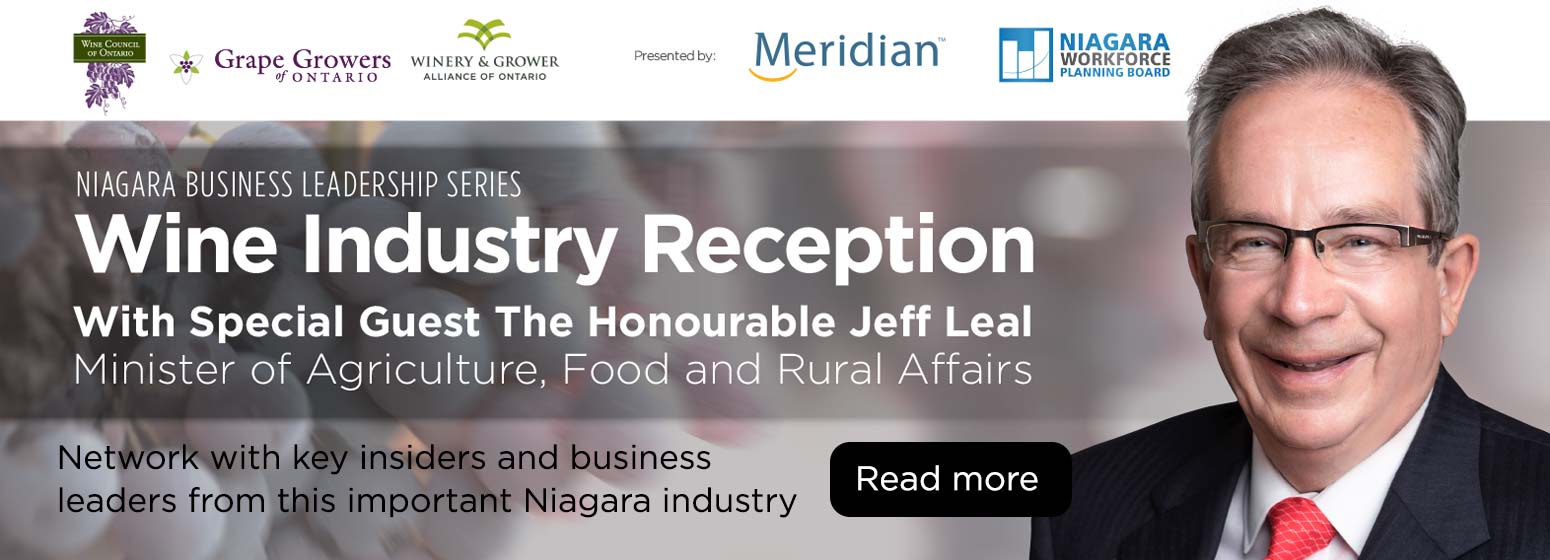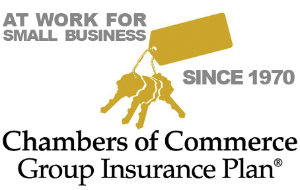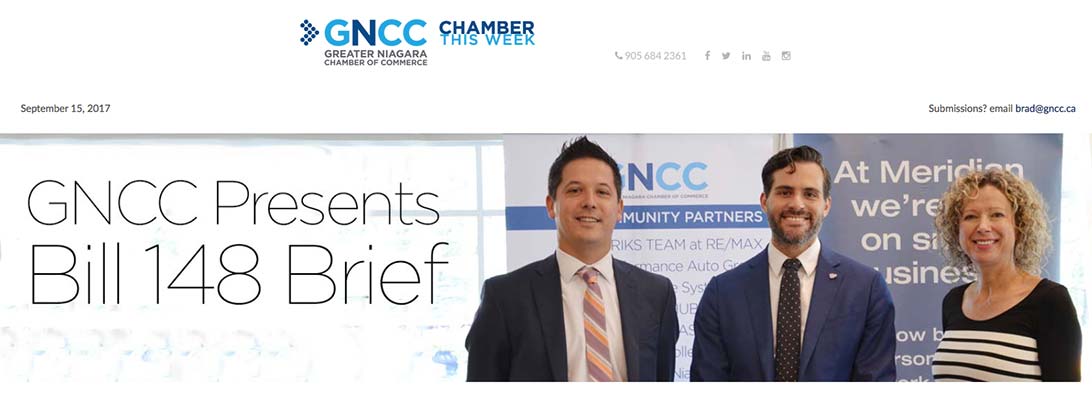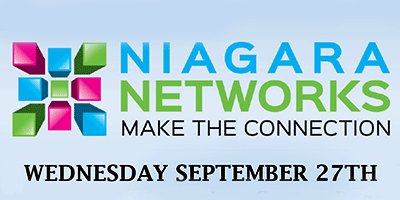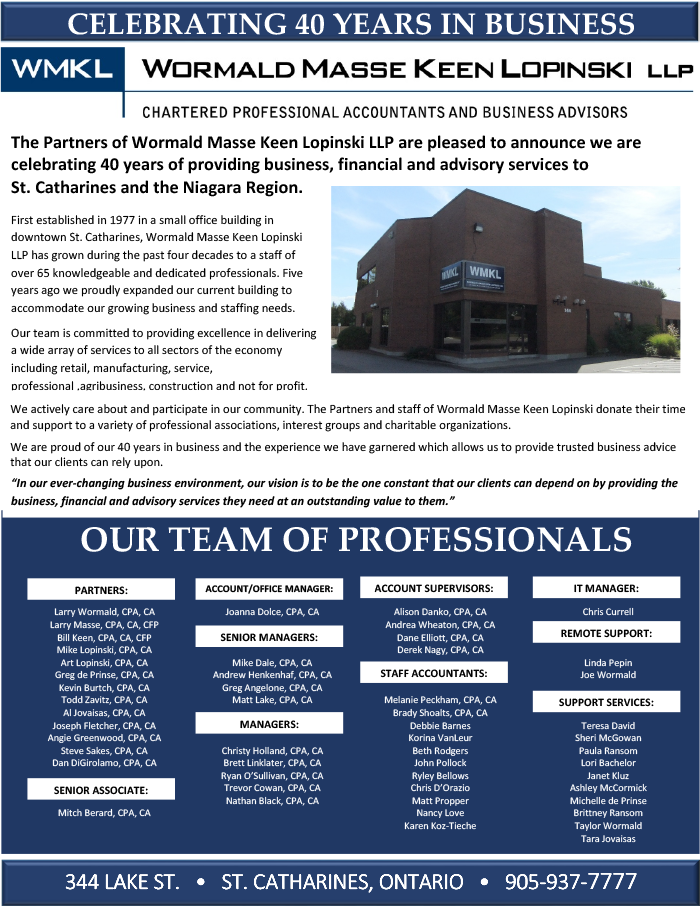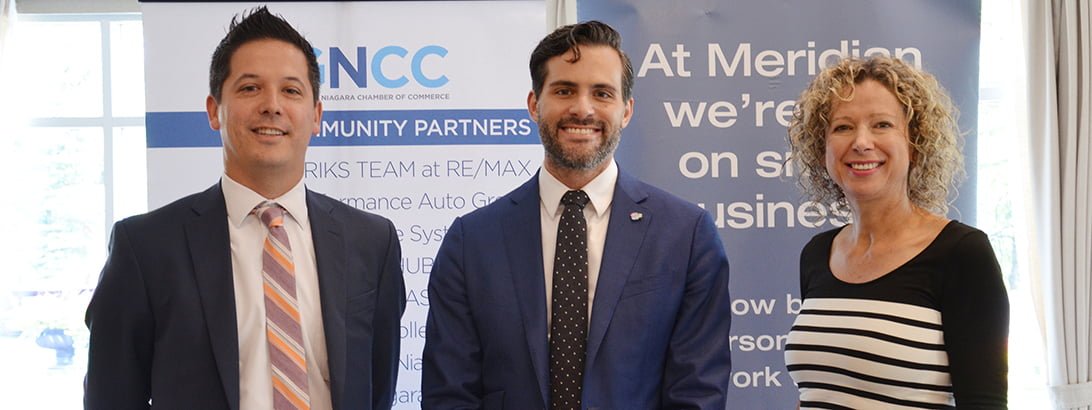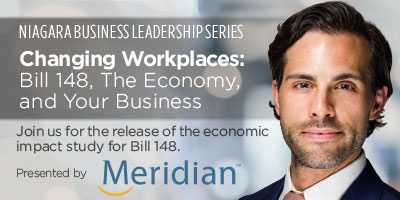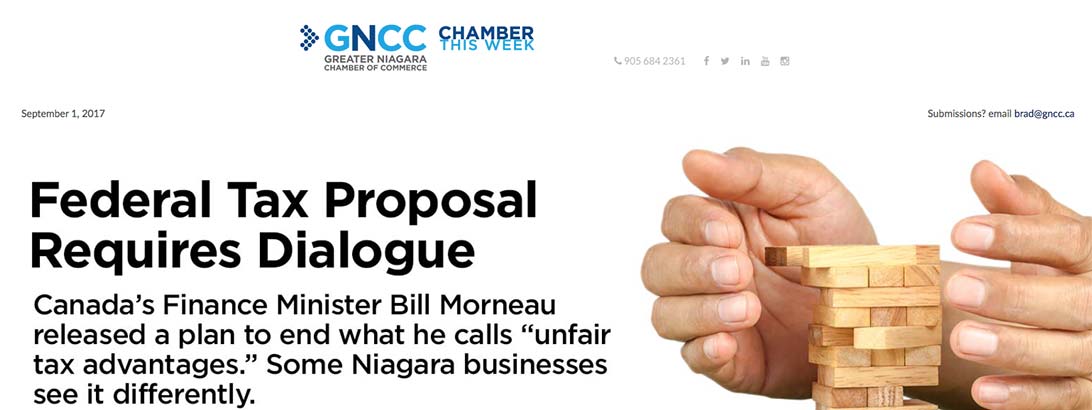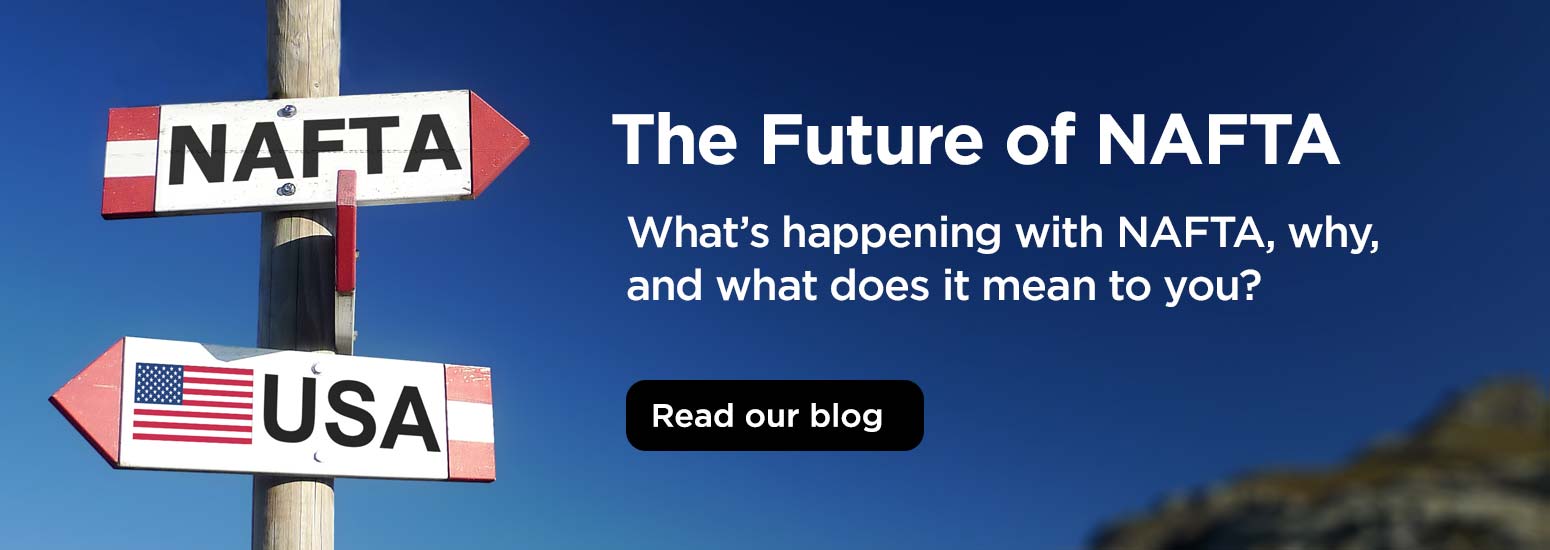
Final analysis of Bill 148 reveals $12 billion economic problem that the Ontario Government must resolve
Today, the Greater Niagara Chamber of Commerce, in partnership with the Ontario Chamber of Commerce (OCC) and the Keep Ontario Working (KOW) Coalition released two major reports that broadly capture the challenges associated with Bill 148 and the concerns of the employer community. The first report is the final economic impact analysis of Bill 148 by the Canadian Centre for Economic Analysis’ (CANCEA), which was peer-reviewed by Professor Morley Gunderson of the University of Toronto.
CANCEA’s analysis reveals that if Government were to do nothing other than implement the minimum wage increase over five years instead of in the next 15 months, jobs at risk would decrease by 74 per cent in the first two years.
The analysis also indicates that while the proposed changes will see $11 billion in wage stimulus flow into the economy in the next two years, a remaining $12 billion problem exists which will lead to jobs lost, added costs, and general damage to the Ontario economy.
“The final report from CANCEA confirms the other alarming analyses from the Financial Accountability Office of Ontario and from TD – there will be significant negative effects in job losses and costs to business from this legislation,” said Mishka Balsom, President & CEO of the GNCC. “We are calling for the government to study these impacts, to implement a slower roll-out and to introduce offsets to help businesses adjust and hopefully avoid these dire consequences.”
The Keep Ontario Working Coalition and CANCEA released interim findings of this Analysis in August, ahead of final amendments being submitted for first reading of the legislation. To date, CANCEA’s work remains the only peer-reviewed economic analysis of Bill 148. In having been reviewed by Morley Gunderson, the work has benefited from one of the leading economists in Canada, who the Ontario Government has turned to on multiple occasions, such as during the Changing Workplaces Review which became the foundation for Bill 148.
“Our risk assessment of the Act is that there is more risk than reward for Ontarians despite the stated goal of the legislation in helping Ontario’s more vulnerable and the Ontario economy,” Paul Smetanin, President of CANCEA. “Given the risk of consolidating income and wealth inequality, putting about 185,000 people out of work, and the risks of small/medium businesses being exposed to their larger competitors, the unintended consequences are significant.”
In addition, the Keep Ontario Working coalition released a second report, The Flip Side of “Fair”, which showcases testimonials from employers and outline how they will be impacted by the legislation. The report gives a voice to those businesses who have felt excluded from the committee process and policy discussion around this legislation. The testimonials all share a common theme, that the minimum wage increase and labour reforms will have serious consequences for their business and their communities.
The KOW Coalition will continue to advocate that the government:
- Consider the risks outlined in this economic impact analysis while also conducting their own analysis;
- Implement broad amendments to Bill 148; and,
- Slow down implementation to avoid unintended consequences and protect Ontario’s jobs, communities and our most vulnerable.
The Keep Ontario Working Coalition (KOW) is a broad-spectrum group of business sector representatives concerned with sound public policy to help produce jobs and grow Ontario. For more information please visitwww.keepontarioworking.ca.
Members include:
Association of Canadian Search, Employment and Staffing Services (ACSESS)
Canadian Franchise Association (CFA)
Canadian Federation of Independent Grocers
Food & Consumer Products of Canada (FCPC)
Food and Beverage Ontario (FBO)
National Association of Canada Consulting Businesses (NACCB Canada)
Ontario Restaurant, Hotel and Motel Association (ORHMA)
Ontario Chamber of Commerce (OCC)
Ontario Federation of Agriculture (OFA)
Ontario Forest Industries Association (OFIA)
Ontario Home Builders’ Association (OHBA)
Ontario Real Estate Association (OREA)
Restaurants Canada
Retail Council of Canada (RCC)
Tourism Industry Association of Ontario (TIAO)
Media Contact
For more information, please contact:
Mishka Balsom, GNCC President & CEO
Mishka@gncc.ca or 905-684-2361


























